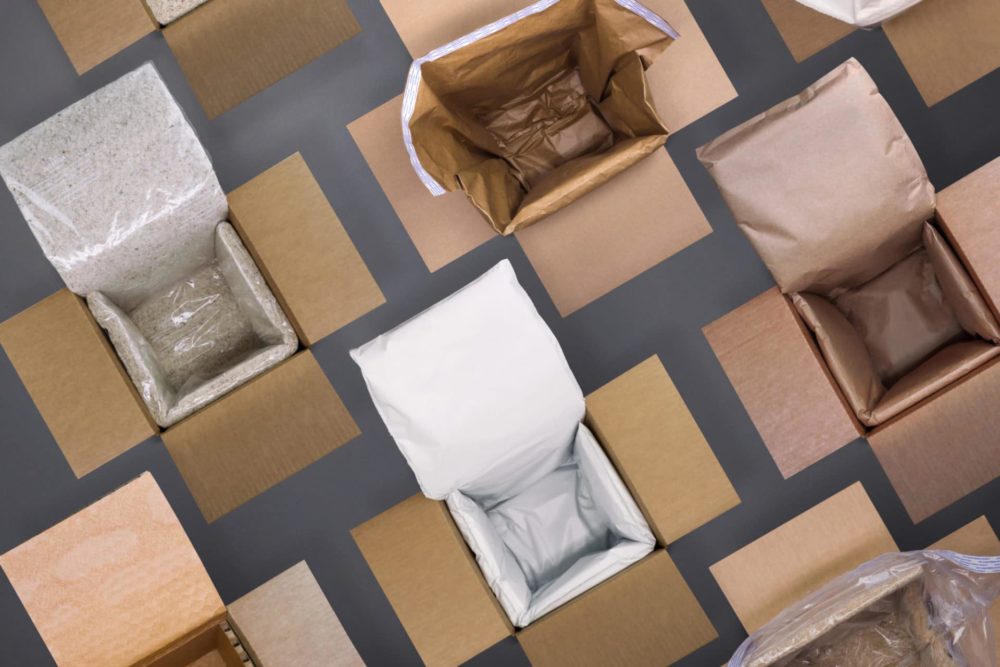Although Covid-19’s shelter-in-place orders have caused an untold list of headaches for people hunkered down in their homes, one particular grievance seems to have unified us all: cooking three meals a day is a relentless chore.
Despite the treadmill of recipes, prep work, and dishes to wash, the pandemic has offered consumers an opportunity to reconsider meal kits as a low-mental-effort solution to the persisting question of what’s for dinner. Meal-kit services saw sales double mid-April, with Blue Apron’s shares rallying 400% after dipping to as low as $2 in March.
This uptick in interest has been shared by companies that support the production and distribution of meal kits. Sustainable packaging maker TemperPack is one such business.
“We’ve been growing a lot organically but the Covid-19-related demand spike really, really accelerated that,” TemperPack’s director of marketing John Briney told AFN.
“We had planned on doing another raise before all that happened, to invest in more machinery and capacity. But the demand signals coming from Covid-19 helped get us there.”
The Richmond, Virginia-based startup announced a $31 million Series C this week led by UK-based Wheatsheaf Group, which is the investment arm of property giant, the Grosvenor Estate. Existing investors also participated in the round. The funding comes only 19 months after it announced a $22.5 million Series B round led by billionaire Steve Case’s Washington DC-based firm Revolution Growth.
TemperPack has developed a curbside recyclable alternative to expanded polystyrene. It recently secured a patent for its ClimaCell packaging material.
One of its biggest partners is US meal kit service HelloFresh. TemperPack has worked with the company to develop a product that meets a variety of criteria around weight, sourcing, and recyclability. The goal was to have a product that mimics the insulating aspects of extruded polystyrene, without its environmental consequences.
Some of the startup’s other customers include Splendid Spoon, Misfits Market, Imperfect Foods, and an undisclosed grocery retailer. Some of its newer clients come from the health and life sciences space, including UPS Healthcare, Illumina, and New England Biolabs, Briney said.
The new funding will be used to increase TemperPack’s production capacity. The company is also exploring an overseas expansion into Europe, which would entail constructing a manufacturing facility there.
Being able to keep up with demand and fill buyers’ order requests is key. When it comes to shopping for packaging supplies, cutomers had a very specific list of priorities pre-pandemic: In order, “Performance, price, supply, and sustainability,” Briney said.
“The supply category quickly jumped to number one [after Covid-19 hit] and became a game-changer. [Customers now] want to know how much supply we can guarantee them followed by whether it works, whether it is affordable, and the sustainability story.”
For a list of 25 innovative sustainable packaging startups, click here.
A variety of food retailers and restaurants began exploring e-commerce options as the pandemic led to lockdowns and movement restrictions. Chick-fil-A launched a meal kit in April, for example, while there has been a 40% jump in online grocery sales so far this year. After lukewarm adoption rates among consumers, roughly 80% of Americans placed an online grocery order during the height of the outbreak. Given all that, it’s easy to see how food packaging has became a hot commodity.
But the pandemic won’t last forever; and when restaurants reopen, many house-bound home cooks may be eager for a break from chopping, mincing, blending, and stirring. This could lead to a decline in meal kit sales to earlier levels.
“We are prepared for that,” Briney claimed. “Right now, everyone is pretty sold out. The demand for insulated packaging to help these food companies is really constrained so going back down is something everyone expects. But I think the system will have a new high watermark and a lot of people that did try food e-commerce will stick with it.”
A bigger challenge facing TemperPack has to do with predicting the market and planning production accordingly. Unlike e-commerce or delivery apps that can be launched relatively quickly, physical products like packaging require a different approach.
“The packaging space involves lots of heavy machinery. It’s always a challenge of timing,” Briney said. “We are more like a car company where we have to identify what we want to do, wait, build things, raise capital, and invest. There is always a lag time between where we want to be and where we are today.”
Other sustainable packaging startups scored funding amid the pandemic. RWDC Industries, a Singapore-based maker of biodegradable plastics, raised $133 million in a Series B round co-led by Vickers Venture Partners, Flint Hills Resources, CPV/CAP Pensionskasse Coop, and Interogo Holding unit International SA. Tech giant Alibaba invested $6 million in Hong Kong plant packaging startup Ecoinno, which is hoping to offer a “third way” between traditional, petroleum-based plastics and bioplastics produced from non-naturally occurring polymers.





